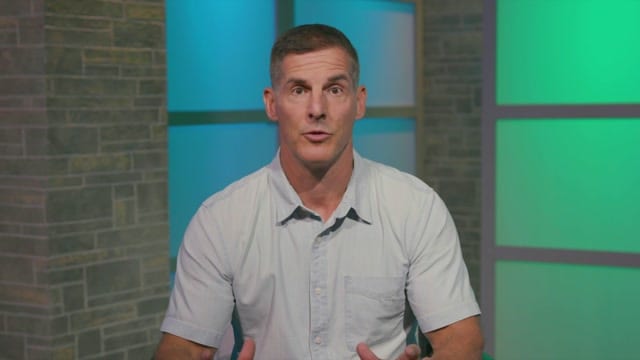
Pastor Craig Groeschel explains how his failure to empower people created a lid on his leadership potential.

Pastor Craig Groeschel explains how his failure to empower people created a lid on his leadership potential.
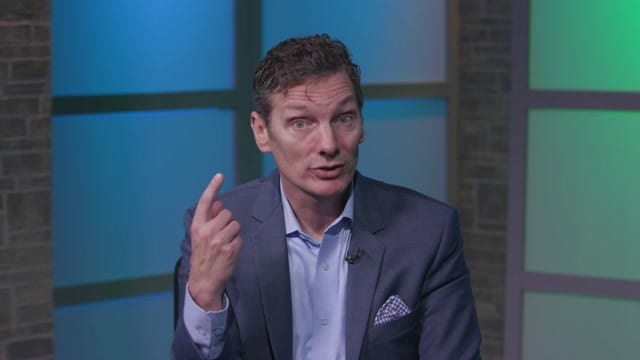
Jeff Henderson teaches about the four voices you can use to build effective presentations and become a better communication.
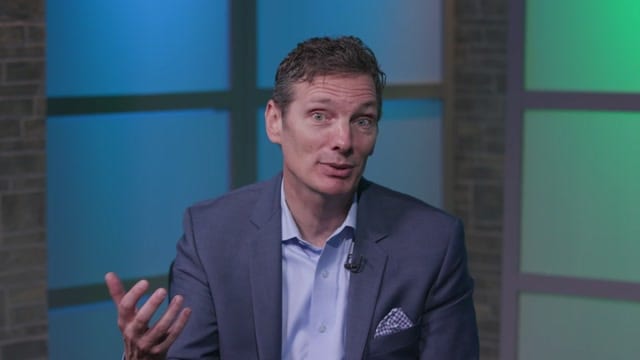
Jeff Henderson explains the conditions that are necessary for leaders to become more persuasive.

I believe that The Global Leadership Summit is a catalyzing agent for change and transformation in Puerto Rican society. I believe it is going to help empower the church and peoples’ lives at the personal level. It is very impactful because of the capacity it has to provide answers to many of the questions and issues in our world. I am totally and absolutely convinced that the church is the answer, from God, to all of humanity’s needs, and the Summit is the best tool that I’ve found in my life during my 30 years as a pastor, for helping people find the answers they are looking for.
…the Summit is the best tool that I’ve found in my life during my 30 years as a pastor, for helping people find the answers they are looking for.
I experienced my first Summit six years ago, and then began making connections to take it to Puerto Rico. We hosted our first GLS in March of 2019. Immediately afterward, extraordinary things began occurring. First, we gained influence into the Puerto Rican government, and second, we gained influence in working with first responders in crisis situations.
During the Summit, a lady came up to me with two or three other people alongside her and said she was the head of the Department of Human Resources of Puerto Rico. She holds influence over 750,000 public employees. She told me she’d decided to come to the Summit after hearing about it from one of her employees. She was amazed that many of the speakers were people she follows closely and who had written books she’d read. She couldn’t believe all these people were together in one place via a video conference. She couldn’t believe the price at which we were allowing people access to this event. She was so impacted that she told me she would like to take this to every department in the Puerto Rican government so they may also have this experience.
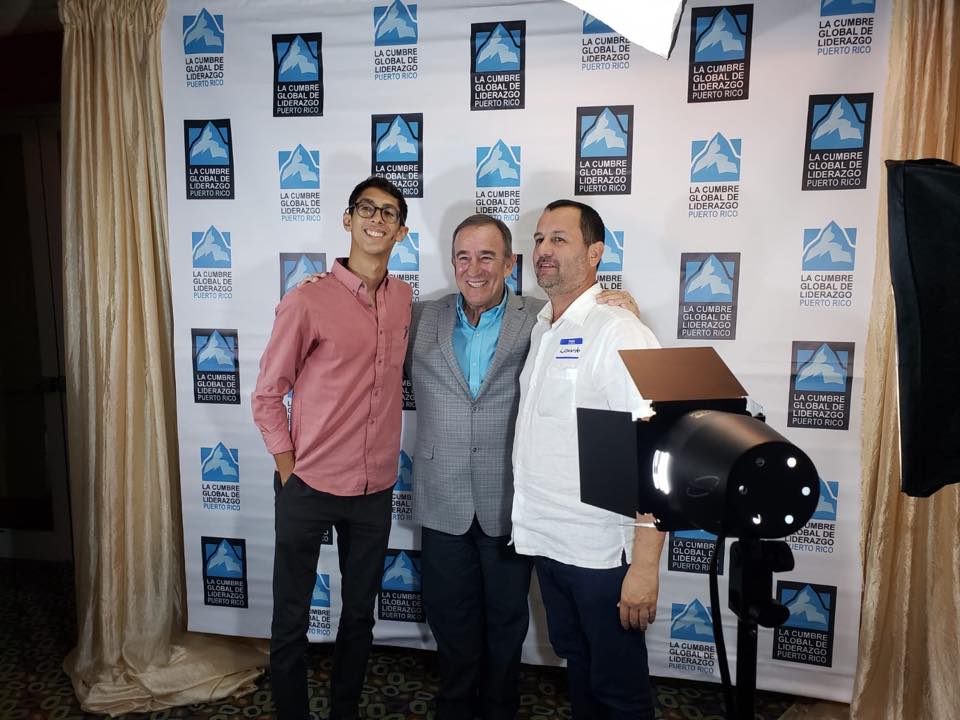
When I heard this, I said, it’s amazing the way God uses us and tries to find ways to infiltrate and reach these kinds of places that desperately need to be empowered both in their leadership and in their Christian life.
Hurricane Maria was categorized as one of the largest atmospheric catastrophes in modern history, and it passed over Puerto Rico in September 2017 as a category 5 hurricane. Behind all the chaos, desolation and uncertainty the hurricane left behind, the church assumed a protagonist’s role.
Within the church itself, The Global Leadership Summit has played an immense role. The year after the hurricane passed, we held our first Summit. When we were there, the director of meteorology for Puerto Rico, told me the Summit was extremely impactful and motivational.
I believe the Summit plays the role of a protagonist in everything that has to do with the handling of emergencies.
A couple of months later, he asked me how The Global leadership Summit could help navigate a future crisis. He told me he couldn’t find a good way of creating an association that could do such things. So, I told him, there is a way because you are not just a fire fighter; you are not just a meteorologist; you are much more than that. You are somebody who helps us lead in the middle of crises. The Summit is made just for that; to help leaders reach their potential. I believe the Summit plays the role of a protagonist in everything that has to do with the handling of emergencies.
He then told me he never saw it that way. And he invited me to the Meteorology Summit, joining together with head police officers, firefighters and National Guard members; there were about 1,000 people there. He told me, we are going to do something unusual in this operation. We always talk about earthquakes, how to navigate natural emergencies such as hurricanes, but at the same time, I’d like to give you an opportunity to talk to us about how to be better leaders in times of crisis. And so, I did. I gave my disposition on the matter. At the end, the people came up to me and said, I always saw myself as a firefighter. I always saw myself as a police officer or as an emergency responder. But I’ve never seen myself for what I really am—a leader capable of navigating times of crisis.
We took up the challenge this year to hold two events, rather than just one. My grander vision is to hold as many Summits as possible in Puerto Rico and allow all this information and awareness to reach every corner of my beautiful island.
 Thank you for supporting the event and also the Spanish translation. Having the Summit professionally translated into Spanish is critically important. In our native language, it’s much easier to contextualize various ideas, and when they present them to us in Spanish, it becomes immensely accessible.
Thank you for supporting the event and also the Spanish translation. Having the Summit professionally translated into Spanish is critically important. In our native language, it’s much easier to contextualize various ideas, and when they present them to us in Spanish, it becomes immensely accessible.
The Global Leadership Summit is the biggest tool that I am aware of today for helping empower lives, families, communities and countries. As a pastor, I was always searching for the opportunity to be part of a project that transcended my existence—a project that was much larger than what I am, think or have ever dreamed possible—but that could have a real impact on communities and the lives of people in these communities. I believe that The Global Leadership Summit is just that. Thank you!
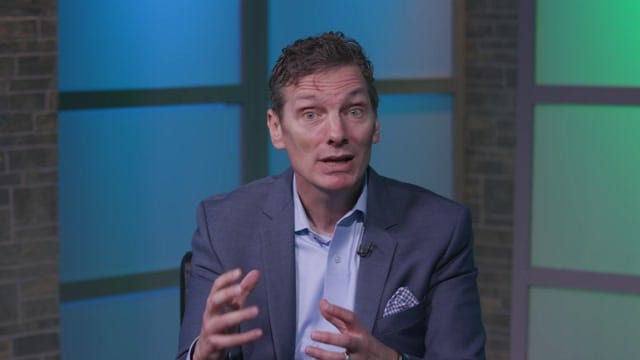
Jeff Henderson identifies how to build a connection with your audience in your presentations.

Most social media posts of a business are 99.9% about the business. The same is true of churches.
“Look at our products.”
“New sermon series starting Sunday!”
“Buy one get one free!”
The focus is clearly on the business, by the business, for the business.
This has been the case for so long that it’s sometimes hard to see the danger. But the danger’s there, and only growing.
Here’s why: If a business were a person, many businesses would be considered narcissists. And narcissism is bad for business.
The definition of a narcissist is “a person who has an excessive interest in or admiration of themselves.” And to pile on, Google drives home the point further by saying “Narcissists are those who think the world revolves around them.”
I bet narcissism never came up in business school, did it?
It’s why you may be tempted to dismiss this notion and stop reading. Before you do, let me point out two important distinctions:
1. I’m not saying the people in your business are narcissists.
2. I’m suggesting we’ve been taught to shine the spotlight on the business and not the customer.
I’m often called upon to consult with religious organization and non-profits. Imagine how this goes over when I talk about this with church leaders. “Wait, what? You’re saying my church is narcissistic?”
“No,” I’ll reply. “I’m suggesting it is displaying narcissistic tendencies.”
Before I’m kicked out of the building, we do a quick exercise by visiting the Instagram page of their church. Of the last ten posts, I ask them to count how many are about the church and how many are about the community. Usually, it’s 9 to 1 in favor of the church. Honestly, more often than not, it’s 10 to zero.
In other words, the spotlight is clearly on the church and not the community.
The business world is no different.
Thriving businesses and non-profit organizations of the future will understand the danger of this. And when I say future, I’m not suggesting 15 years from now.
In this new world, online reviews win out over paid advertising. Brands advertising about how great they are lack credibility. As Scott Cook, a billionaire director of both Proctor and Gamble and eBay correctly points out, “A brand is no longer what it tells customers it is. A brand is what customers tell customers it is.”
A brand is no longer what it tells customers it is. A brand is what customers tell customers it is.
The future is here. The organizations that understand this and shift the focus from the business to the customer will win the heart of the customer. And the heart of the customer is the great battleground. When you do this effectively, customers start talking positively. They notice you are FOR them. In turn, they become FOR you. It’s as if they have a personal, vested interest in supporting the business. They become your sales force…. for free. This is the fertile ground where positive, word-of-mouth advertising begins to grow.
For this to happen, you must give them a reason to say yes about the following question.
A Question your Customer is Asking About You
One of my business heroes is Horst Schulze. Mr. Schulze is Chairman and CEO at Capella Hotels and Resorts and Solis Hotels and Resorts. He co-founded The Ritz Carlton. During his time there, the Ritz Carlton won the prestigious Malcolm Baldridge award for exemplary customer service, not once, but twice.
This kind of compelling and exemplary service is built upon a question.
This single question drives the systems, focus and yes, heart of the business.
“The #1 question customers are asking about a business is, ‘Do they care about me?’” Mr. Schulze says.
It’s so easy to dismiss this question. It seems touchy-feely. It seems hard to measure. And no one would admit out loud that they don’t care about the customer.
If you look closer though, you’ll find systems that have a natural bent toward spotlighting and protecting the business.
A great example of this is the banking industry. While online banking has made a significant shift in how banks interact with their customers, there is still the occasional need to actually go inside a branch. Typically, you will find a cue line and then when it’s your turn the branch employee will say, “Next.”
“How many of you,” Mr. Schulze will ask his audiences, “are named ‘Next’?”
One of the greatest sounds we like to hear is when someone says our name. “Hey buddy” often sounds like, “You don’t know my name.” “Hey Jeff” creates a much better feeling and emotion when I hear it. I bet the same is true with you.
It’s why the Ritz Carlton built a system around getting to know your name and spreading it to the rest of their team during your stay. When they say your name, it shows they care.
Several years in a row, my daughter and I would attend a Father Daughter Dance. One year, I decided we would stay at the Ritz Carlton in Buckhead, a few minutes north of downtown Atlanta. At the time, I was the pastor of Buckhead Church which was very close to the Ritz.
Jesse was 8 years old at the time. When we arrived, the Ritz Carlton team helped us get our bags out of the car. The first thing they did though was to introduce themselves and ask our names. (Note: This is a system.)
They asked us to go ahead to the registration desk where they would meet us with our bags. As we were walking in, I glanced back to see the bellman whispering into his shirtsleeve, like he was in the Secret Service. (Note: This is another system.)
Quick question–what was he doing? Why was he whispering into his sleeve?
It all goes back to a question customers ask, “Does this business really care about me?” And nothing quite communicates care than when a customer hears a business say their name.
As Jesse and I walked into the beautiful Ritz Carlton Buckhead and approached the registration desk, we were greeted with, “Good evening Mr. Henderson and Jesse. We are so glad you’re here.”
I wish you could have seen Jesse’s eyes. The memory of that moment brings a smile to my face and tears to my eyes as I write this. When we were walking to our room, Jesse whispered to me, “Dad, how did they know our names?”
I smiled and said, “Honey, your Dad is big time in Buckhead.”
This is what it means to be FOR your customer. To not only say we care, but to make specific, systematic shifts toward showing it. When this happens, customers respond.
That was 11 years ago. I remember it like it was yesterday. Heck, in some ways, it feels like yesterday. I tell that story often. I never tell the stories of the times I was called “Next.”
This doesn’t happen by accident. It happens with a fundamental decision to create systems that are FOR the customer.
Let’s rewind the tape and reveal what happened. As Jesse and I drove up, the bellman knew his most important job wasn’t just helping us with our bags. His most important job was discovering our names. Once he had our names, he went Secret Service on us by radioing inside to the front desk. “Mr. Henderson and his daughter, Jesse.”
The person at the desk heard it, confirmed it over the radio with the bellman, and was ready with a smile and our names. And here we are, 11 years later and I’m still telling that story.
Did Jesse and I think the Ritz Carlton cared about us? Well, of course. They know our names. And as Norm from Cheers will tell you, we all want to go “where everybody knows your name.”
What’s most impressive to me about this is that it required planning. It required thinking through a system that could be replicated throughout the entire Ritz Carlton chain. Somewhere at some time, a team of people sat down and said, “How can we capture the names of our guests and repeat it back to them within 30 seconds of their arrival?”
This is what it means to be FOR your customer. To not only say we care, but to make specific, systematic shifts toward showing it. When this happens, customers respond. They tell others about it and you begin to reap the pixie dust of advertising called word-of-mouth. But you have to give customers something to say. Taking their bags is expected. Learning and saying their names is a wow. When this happens, we show customers we care.
And people respond to organizations that truly care for them.
Click here to get your copy of Know What You’re FOR: A Growth Strategy for Work, An Even Better Strategy for Life by Jeff Henderson.
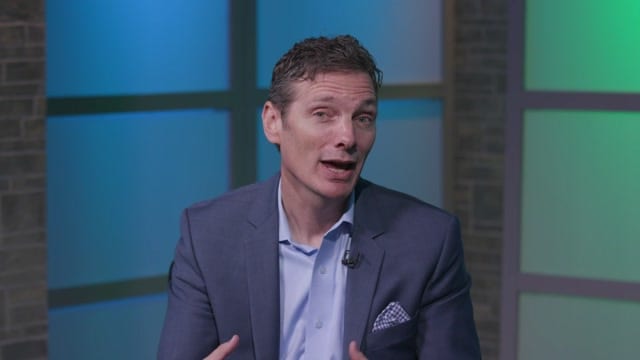
Jeff Henderson talks about the mindset leaders should have when preparing for a presentation.
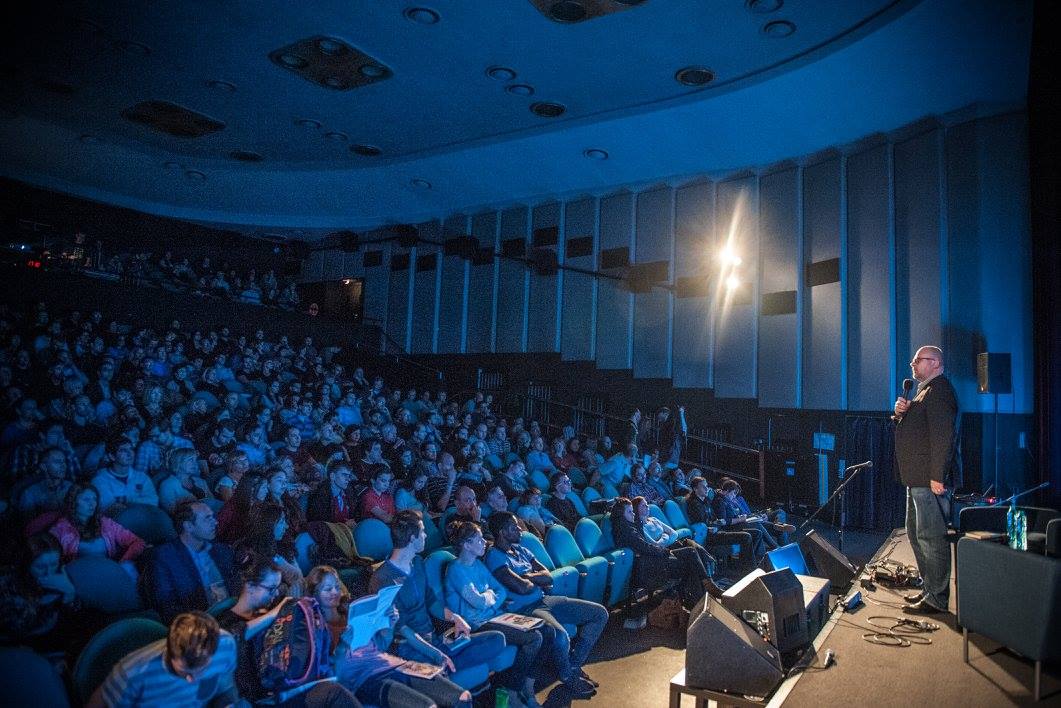
 Lukas Targoz, native to Czech Republic, has been involved with The Global Leadership Summit since 2008. He is currently a country leader supporting the GLS in the Czech Republic and recently in Slovakia. His experience prior to the GLS involved working with John Maxwell’s leadership program, Equip. Lukas became a Christian a week before the fall of communism, and at 14 years old, started preaching the gospel. By the age of 16, he was in seminary, and later planted a church where he is now the pastor. He has a passion for reaching people for Jesus by developing leaders.
Lukas Targoz, native to Czech Republic, has been involved with The Global Leadership Summit since 2008. He is currently a country leader supporting the GLS in the Czech Republic and recently in Slovakia. His experience prior to the GLS involved working with John Maxwell’s leadership program, Equip. Lukas became a Christian a week before the fall of communism, and at 14 years old, started preaching the gospel. By the age of 16, he was in seminary, and later planted a church where he is now the pastor. He has a passion for reaching people for Jesus by developing leaders.
“When communism fell, I was 13 years old,” said Lukas Targoz, pastor and leader for the GLS in Czech Republic. “I gave my life to Jesus one week earlier. Suddenly all the doors opened. I could do anything, but I was only a 13-year-old kid who didn’t really know anything. But because there was such a big need to do something, many of us youngsters were put into the mix very quickly.”
Three months after the fall of communism, Lukas, a young new Christian, was preaching on the streets and quickly got into ministry. At 16, he started seminary. And by 18, he became a missionary. “It helped me see the need for continuous improvement, growth, learning by reading, trying and conversing,” said Lukas. “I realized how much I needed to learn to do what I do in good quality.”
“I felt called by God to help leaders and everybody who is involved in ministry in the church on any level,” said Lukas. “I felt like God called me to help them flourish.”
You have to trust someone to lead or be led, and if you have a problem trusting or receiving trust, you don’t have leadership.
The leadership system he and others were accustomed to when communism fell, was one of political corruption. With the freedom that came with the fall of communism 30 years ago, most people had a very limited view of what godly leadership could look like. “Most of the people had to learn about leadership from scratch,” explains Lukas. “There were not many leaders ready to lead. Most of the church leaders were trying to play some kind of game with authorities because our government at the time was anti-Christian, and people were persecuted or put in prison. So, the Christian leaders had learned to play, and tip toe, trying to not get arrested. You never knew if, when someone joined your church, whether they were trying to find God or were secret agents.
“Those were difficult times. People have learned not to trust. But the problem is leadership is a trust business. You have to trust someone to lead or be led, and if you have a problem trusting or receiving trust, you don’t have leadership. Trust was not a skill people had. They didn’t need it for their survival before, but it was a different era. Many new leaders who got into the ministry were inexperienced but were willing to learn and do something.”
What I would like to see is the rise of godly leadership based on strong values and vision rather than momentary gain and political play.
Lukas studied leadership and got involved with a lot of different initiatives that help leaders, whether by conferences, seminars or publishing a leadership magazine. He studied leadership at an academic level—all with the goal in mind to build leaders. “I believe that if leaders get better, the whole organization gets better,” said Lukas. “If leaders are strong, the churches, companies and organizations that are represented will be stronger and better and will be able to flourish.”
His passion for leadership aligns perfectly with the vision of The Global Leadership Summit. He was first introduced to the GLS at a conference via satellite from Germany. “We thought it would be a really good extension to help leaders get better,” said Lukas. And in 2008, he brought the GLS to the Czech Republic for the first time. “I believe that giving leaders encouragement, motivation and tools to grow, giving them something they can do and ideas about what they can do, and introducing them to leaders who are already doing that, is fostering the movement of better leadership.”
The Czech team calls the GLS a conference for those who care about the future. “We believe the future is open,” said Lukas. “It’s not settled yet, and we’re the ones who can create a better future for any area. What I would like to see is the rise of godly leadership based on strong values and vision rather than momentary gain and political play. I think that’s what we’re missing in every area of our society—both Christian and non-Christian. Most of our people are non-Christian. But I believe, especially for the Christian community, if we are a good example of that kind of leadership, even people who are not Christians will want to know more.
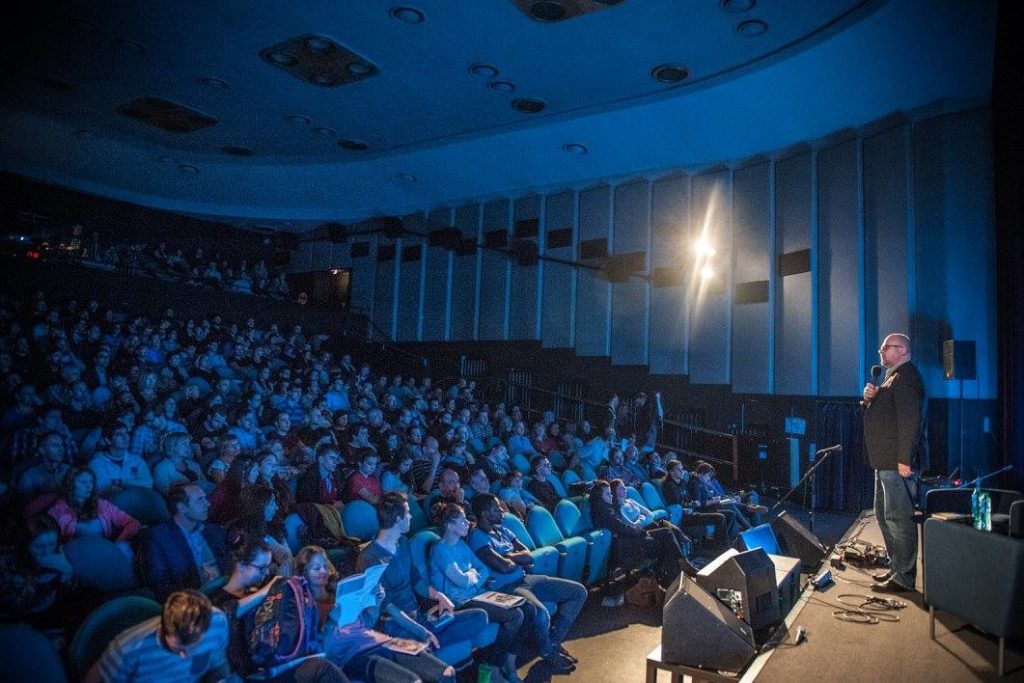
“Many of the things we speak about at the Summit are about being in God’s will, doing what God wants, creating an environment in the churches and the kingdom of God.”
For the last 11 years, the GLS has brought people together from different sectors of society, even as the majority of the Czech Republic identifies as non-Christian. Church teams come together, engaging in conversation about values, which helps them on their journey as a church community to reach and connect with the broader non-Christian society.
Czech society is based on conversation and relationship. That’s the big difference between the US and the Czech Republic. “People in the Czech Republic don’t move much,” explains Lukas. “They usually stay in the same city for most of their life. For example, 80 percent of the inhabitants of my city were born there and will die there. We are not mobile. We’re small in size so we don’t need to move that much. But the side effect of that is that it takes forever to build a relationship with somebody new.
“It’s not like the societies today that are very mobile, where you can come to a new place and say hi and are instant friends. That doesn’t work in Czech Republic—you’re not instant friends with anybody. You have to build trust, and it takes forever. But once you have it, you have it forever.
“It’s the same with leadership. We are patient, and we encourage Christian leaders not to give up. If they continue to sow these connections, they will reap more connections in the future.”
Many young people in the Czech Republic have never experienced communism. They grew up in a different era. And that is a challenge. “We need to address both groups—those groups who still remember, and also this group that has been active since freedom came,” said Lukas. “We can’t just focus on the youngsters because some of the previous wisdom and experience has to be involved. It’s the role of our leaders to figure out how to involve both leaders in the process.”
If I look at the depth and the quality over the years, the Summit has built a whole generation of Christian leaders.
Young leaders grew up in the era where they have all the possibilities—they can travel and learn languages, and many of them speak English very well. But the older generation didn’t have that luxury. When they were young, they were forced to learn Russian. They were not able to learn English, so for them, their ideas are limited to the language. “I don’t think people in America realize how many resources they have, just because of the many resources available to them in English,” said Lukas. “I know for myself, when I started reading English, it opened up a whole new world to me. I read the stuff I would never find in my own language. I could listen, read and learn from people I would never be able to learn from in my own language. So, I encourage people to learn English just for that reason. But we’re not quite there yet.”
“Having the GLS translated is especially helpful for older generations who are trying to re-learn skills and re-think everything they knew,” said Lukas. “For them, it’s a necessity, they would not be able to flow together without the translation. It’s important. It’s not always easy, but it’s rewarding.”
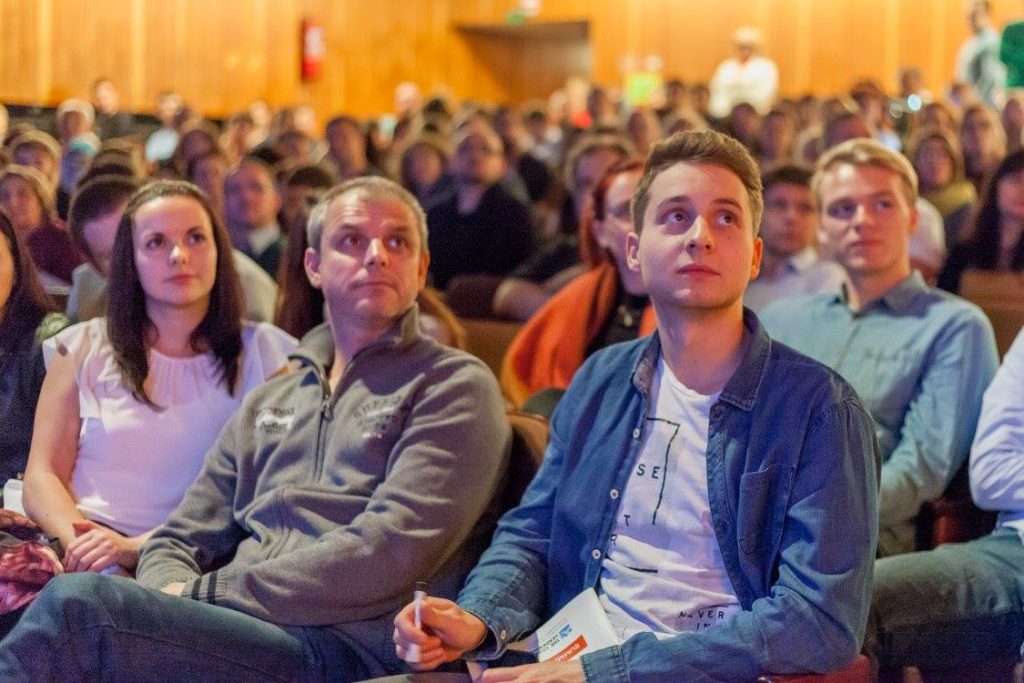
“I really want to thank everyone who supports the GLS,” shares Lukas. “It’s much bigger than you think.
“When you come to the conference at one location, and see the speakers on the screen, it seems like a good event, but you don’t understand the impact it’s having around the world. I have traveled to the least developed countries, and I know for them, it’s the only thing they have for leadership, including leadership in the church.
“If I look at the depth and the quality over the years, the Summit has built a whole generation of Christian leaders. It is much more valuable than one single product, book or talk. People over the years, will have a different mindset. Their mind is transformed because of what they hear. It’s a process. We’ve been doing it for 11 years, and those who’ve been with us all those years, do things differently in their churches and organizations because they’ve learned to think differently.
“It’s really valuable, and I thank everyone who supports it. It’s one thing that brings results and one thing that I believe God is really happy with it.”
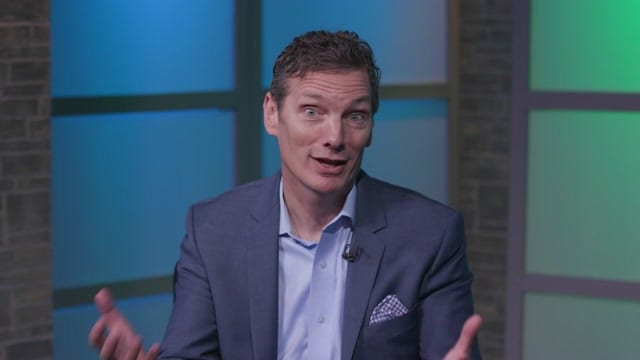
Jeff Henderson draws the connection between leadership and communication skills.
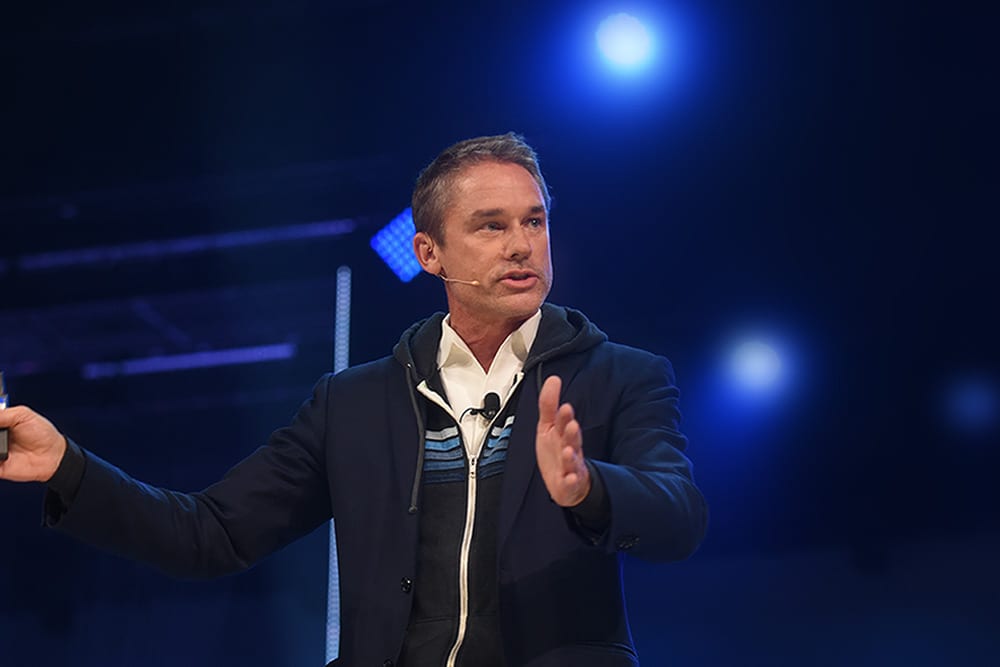
While The Global Leadership Summit is two days of fresh, actionable leadership content designed to ignite transformation, the GLSnext Event Series are strategically positioned throughout the year to inspire continued growth. Additionally, GLSnext Events will include time for discussion and a Q&A session.

Join us on Tuesday, November 12, 2019 for fresh, actionable insights from one of the most popular and impactful speakers that we have ever had on the Summit stage! Marcus Buckingham will be speaking on new material from his book, Nine Lies About Work: A Freethinking Leader’s Guide to the Real World. Available for U.S. and Canadian Audiences only.
“We welcome and encourage comments on this site. There may be some instances where comments will need to be edited or removed, such as:
If you have any questions on the commenting policy, please let us know at heretoserve@globalleadership.org”
Recent Comments